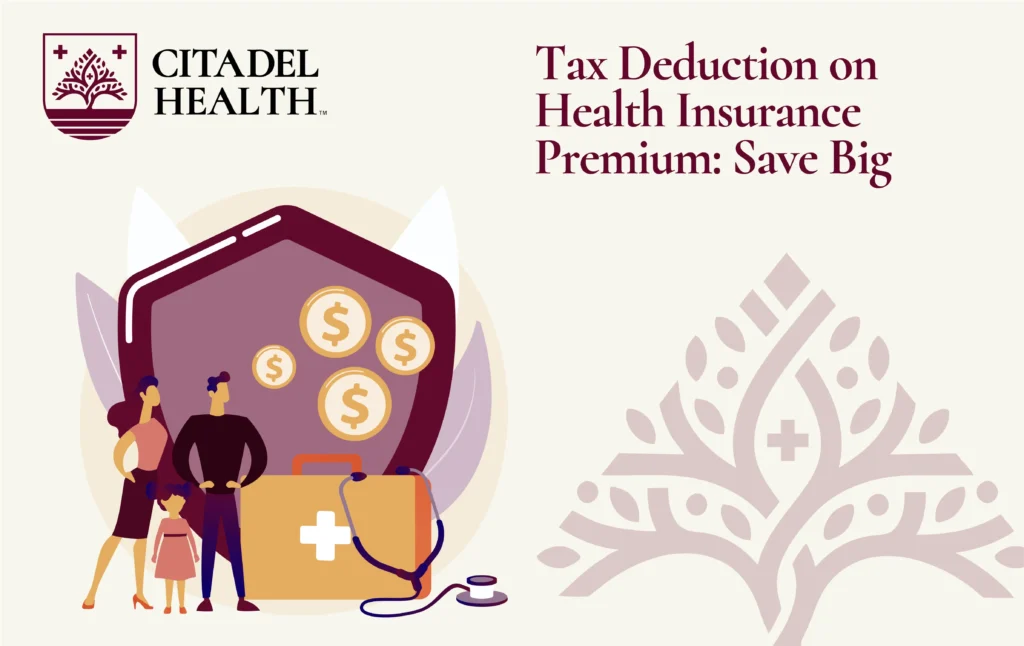Published on: 07/01/2025

SHARE
For many taxpayers, paying Health Insurance Premiums not only secures financial protection in medical emergencies but also unlocks valuable tax-saving opportunities. Historically, Section 80D of the Income Tax Act has allowed deduction of health insurance premium. But with medical costs surging over recent years and the Union Budget of February 1, 2025, introducing sweeping reforms, 2025 is shaping up to be a landmark year for tax relief on health insurance. This blog dives deep into the Tax Deduction on Health Insurance Premium, how it’s evolving, and what it means for you.
As of FY 2024–25, Section 80D of the Income Tax Act allows taxpayers to claim deductions on health insurance premiums paid for themselves, their spouse, dependent children, and parents. The deduction structure is as follows:
Example:
If you pay ₹23,000 as premium for your family and ₹5,000 for a preventive check-up, you can claim only up to ₹25,000 in total for that year.
Payment Mode:
Premiums must be paid through non-cash modes (digital, cheque, card, etc.), except for preventive check-ups, which can be paid in cash
Tax Regime Applicability:
Section 80D deductions are available only under the old tax regime. The new regime generally does not allow these deductions
As of June 2025, the Union Budget has not officially increased the Section 80D deduction limits, but there is significant industry demand and public discussion for raising these caps due to rising healthcare costs. Suggestions include:
Increasing the deduction limits to ₹50,000, ₹75,000, or even up to ₹2.5 lakh for families with high medical expenses or multiple senior citizens.
Extending Section 80D deductions to the new tax regime, which currently does not allow most exemptions and deductions, including 80D, except for limited transitional cases.
No official announcement has been made yet regarding these changes, but they remain key recommendations and expectations for future budgets
To claim a tax deduction on health insurance premium, the eligible taxpayers include individuals, Hindu Undivided Families (HUFs), and Non-Resident Indians (NRIs) who are filing their taxes in India.
You can claim a tax deduction under Section 80D for health insurance premiums paid for yourself, your spouse, your children, and your parents even if your parents aren’t financially dependent on you.
However, you can’t claim this benefit if you’re paying the premium for siblings, in-laws, or other relatives.
The deduction also covers top-up health plans and critical illness policies, as long as they are for eligible family members.This makes it easier for taxpayers to reduce their overall tax on health insurance premium while ensuring comprehensive medical coverage for the household.
To qualify, make sure the premium is paid through non-cash methods like UPI, net banking, or credit/debit cards. Only preventive health check-ups (up to ₹5,000) can be paid in cash and still be eligible for a tax break.
Here’s how to correctly claim the deduction of health insurance premium:
Section 80D benefits are available only under the old tax regime. If you opt for the new regime, these deductions are generally not available.
Declare your premium payments under Schedule 80D in your Income Tax Return (ITR). If claiming through your employer, submit payment proofs within the financial year for inclusion in Form 16.
Maintain premium receipts, insurer certificates, and proof of digital payment. These are essential for substantiating your claim, especially if covering parents or family members.
If you don’t have health insurance, you won’t be able to claim any deduction under Section 80D. However, in certain cases especially for senior citizens who aren’t covered under any health policy you can still explore deductions under Section 80DDB. This allows a deduction of up to ₹50,000 for specified medical treatments and diseases, provided you have valid medical documentation and certification from a specialist.
Still, going without health insurance comes with serious downsides. Besides losing out on valuable tax benefits, you’re also exposing yourself to major financial risks in case of unexpected medical emergencies. Health insurance acts as both a safety net and a smart tax-saving tool skipping it can lead to higher out-of-pocket expenses and missed savings.
The 2025 updates on tax deduction for health insurance premiums bring a much-needed and positive change. With medical expenses rising every year and people becoming more aware of the importance of financial planning, increasing the Section 80D limits and the possibility of including these deductions under the new tax regime could make a big difference for many taxpayers.
These changes will especially benefit senior citizens, who often face higher premiums and need wider coverage. They also help dual-income families who manage health insurance policies for themselves as well as their parents. Additionally, NRIs filing income tax returns in India and paying for family health insurance here can also take advantage of these improvements.
As always, it’s a good idea to review your health insurance policy, check your premium payment receipts, and plan your tax filing strategy before submitting your ITR. A little bit of preparation now can go a long way in protecting both your health and your finances and ensuring you get the full benefit of tax deduction health insurance provisions under the Income Tax Act.
You can claim up to ₹25,000 for self/family and an additional ₹50,000 for senior citizen parents under Section 80D, reducing your taxable income
Yes, for spouse, children, and parents (regardless of dependency).
You cannot claim under Section 80D, but senior citizens may claim up to ₹50,000 under Section 80DDB for specified illnesses.